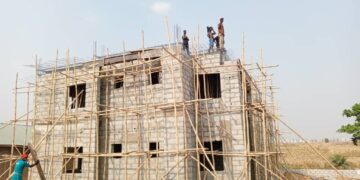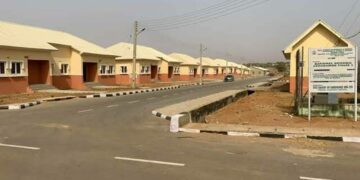Prominent figures around the world, yesterday, have called for the price of ground-breaking new HIV medicines to be reduced dramatically so that they can be used worldwide by all who need them.
Business leaders, Mo Ibrahim and Paul Polman; Nobel laureates Françoise Barré-Sinoussi and Joseph Stiglitz; former president of Malawi, Dr Joyce Banda and former New Zealand Prime Minister, Helen Clark, and artists Olly Alexander (singer and actor), Stephen Fry (actor, writer, presenter), Adam Lambert (singer and songwriter), David Oyelowo (actor, producer, director) and Arnaud Valois (actor) are amongst those who have joined the call in an open letter, that was published in the run up to the International AIDS Conference, opening in Montreal on 29 July.
Recall that the AIDS pandemic continues to take a life every minute, and new HIV infections are rising in too many communities. The breakthrough long-acting medicine only has to be taken every few months and is proving to be one of the most effective methods to prevent HIV transmission. In addition to the prevention tool available now, long-acting antiretrovirals could one day be part of revolutionizing treatment to prevent deaths.
But these medicines are currently only available in high-income countries at a price of tens of thousands of dollars, far out of reach for people and governments in low- and middle-income countries. These long-acting HIV medicines could enable millions of adolescent girls and young women in sub-Saharan Africa to protect themselves from acquiring HIV.
They could enable people from marginalised communities including gay men, transgender people, and sex workers, to receive a discreet injection every few months to protect themselves.
In a statement, made available to LEADERSHIP, regional coordinator of the International Community of Women Living with HIV Eastern Africa (ICWEA) Lilian Mworeko, said, while many in the global North are getting access to long-acting HIV prevention tools and medicines, Africans are overwhelmingly denied the opportunity.
It is worse for groups who continue to be left behind like adolescent girls and young women, Mworeko said, adding that, “as long as the price is unaffordably high for our governments and for funders to purchase, we will continue to be locked out from being able to access them. They are vital to preventing new HIV infections and they could become transformational in treatment. Our message is simple: all of our lives matter.”
Co-Chair of the Africa Union Africa Vaccine Delivery Alliance for COVID-19, Dr Ayoade Alakija said, there is a choice about how new medicines are launched into the global market in terms of whether they are available to everyone, everywhere.
“The limitations are less to do with scientific or technical challenges and much more to do with how medical innovation and access to health countermeasures are currently organized and financed to favour the rich and reinforce inequity. The conference in Montreal provides an opportunity for those leaders who are able to get a visa and travel, to demonstrate that all lives are equal and new health tools are accessible to all,” Alakija added.
The stakes are high. 40 million people around the world are living with HIV today, and around 1.5 million people were newly infected in 2020 alone.
This is an issue of inequality, said executive director of UNAIDS, Winnie Byanyima, adding that, “will these new medicines help us break down the inequalities driving the AIDS pandemic – affordable and available for those who need them most? Or will they stay out of reach? The pharmaceutical industry has the opportunity to make medicines affordable and accessible to people in all countries – including so-called middle-income countries – through sharing technologies and setting an affordable price today until those generics come online.”
The open letter called on ViiV, one of the world’s largest HIV pharmaceutical companies, to share their technology and know-how to boost production and set their price at a point where all countries can afford to buy these medicines. In particular, it calls on ViiV to tackle the barriers to access by taking the following steps.





